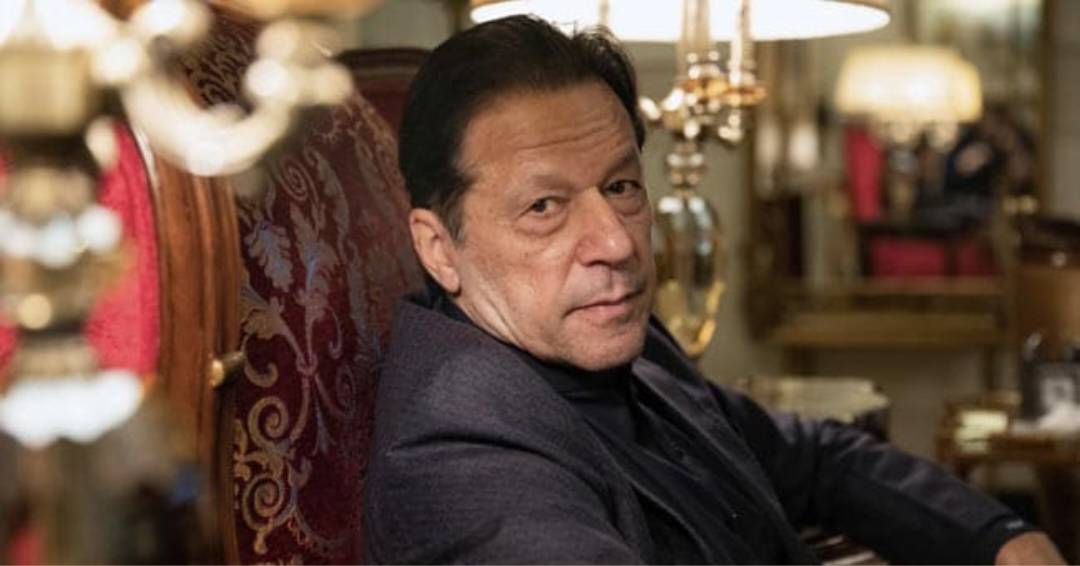
Holed up at his fortified home in Lahore’s upmarket Zaman Park, Imran Khan is looking increasingly besieged and isolated as Pakistan’s military instigates a sweeping crackdown against the former prime minister’s political party.
Following unprecedented attacks against military-owned properties and widespread protests after Khan was briefly jailed earlier this month, more than 10,000 people linked to Khan’s Pakistan Tehreek-e-Insaf, or Movement for Justice, have been arrested in police raids. Several prominent leaders are now in jail, and more than two dozen PTI stalwarts have quit the party this week.
Publicly, the army and the government say they are holding accountable anyone who attacked state-owned property. Behind the scenes, however, there’s a recognition that Khan’s popularity is unmatched, and his party must be cut down to size ahead of elections due in October at the latest, according to two people familiar with the military’s thinking.
Khan now risks meeting a similar fate as previous prime ministers who have been jailed, exiled, or executed following power struggles with Pakistan’s generals. Although army support was widely credited in bringing Khan to office in the last national election in 2018, his current predicament stems from his attempts to mess with military hierarchy—a red line for Pakistan’s most powerful institution, which has directly controlled the nuclear-armed nation for much of its post-independence history.
“For now, this is the end of the road for Imran Khan,” said Ayesha Siddiqa, a senior fellow at King’s College London and expert on Pakistan’s military. “The question is will they be able to take away his support base?”
Khan’s ability to connect with the outside world and marshal support is already being eroded. On Wednesday, the internet at his Lahore residence was abruptly cut off before a scheduled call with British lawmakers concerned about Pakistan’s deteriorating political, economic, and security situation. Police have also compounded most of his armored cars, limiting his movements, Zulfi Bukhari, a close aide to Khan, told Bloomberg News.
On Friday, a news report said Khan and his wife had been placed on a no-fly list and were barred from leaving the country. The former premier survived an assassination attempt late last year.
Since his ousting as prime minister last year following a parliamentary no-confidence vote, Khan has campaigned relentlessly for fresh elections. He has blasted the unwieldy coalition headed by Prime Minister Shehbaz Sharif—who is seen as more amenable to the army even though his brother was once ousted in a coup—as a corrupt force of self-serving dynastic parties.
Khan’s charismatic, everyman quality, past cricketing victories, and more recent embrace of pious religion—despite his elite upbringing and earlier playboy lifestyle—have seen his popularity soar across Pakistani society, including many of the army’s rank-and-file. An opinion poll published by Gallup earlier this year found that Khan’s approval rating jumped to 61% in February from 36% in January last year, while Sharif’s fell to 32% from 51% in that time.
That poses a major dilemma for the military brass. Khan would win an election by a landslide with no “credible alternative” for the army to back, according to Tim Willasey-Wilsey, a senior associate fellow at the Royal United Services Institute for Defence and Security Studies in London.
With Pakistan’s more than 240 million people grappling with record inflation and the country on the verge of default thanks to stalled bailout talks with the International Monetary Fund, the military is unlikely to boot out the elected government and take direct control. Pakistan’s last coup leader, General Pervez Musharraf, stepped down as a deeply unpopular and diminished figure fifteen years ago.

Post Your Comments